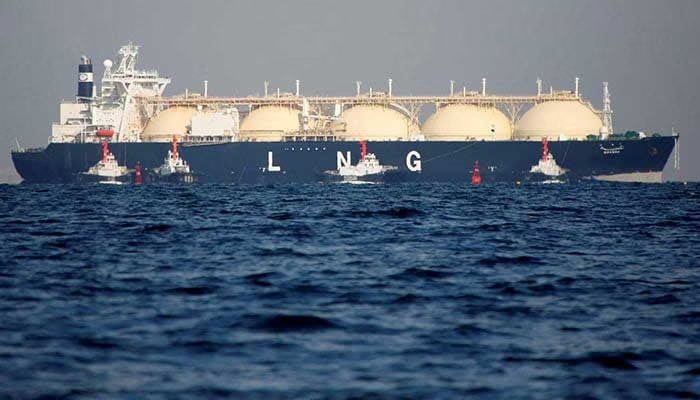Federal Minister for Petroleum, Pervaiz Malik, has raised alarms over a potential surplus of imported Re-Gasified Liquefied Natural Gas (RLNG), warning that stockpiles could arise if the power sector fails to lift its committed volumes. Speaking to The News, Malik emphasized the need for improved coordination among all segments of the energy chain, and outlined a range of domestic and geopolitical issues currently shaping Pakistan’s energy strategy.
“There will be no surplus RLNG if the power sector takes its committed volume,” Malik stated, calling attention to the lack of inter-sectoral alignment that threatens to disrupt the balance between energy supply and demand. He further noted that the government is actively exploring options, including the redirection of excess supply, to prevent expensive stockpiles from accumulating.
Malik stressed the importance of a merit-based approach in energy governance. He called for a restructured Cabinet Committee on Energy (CCOE), advocating for the inclusion of key ministries such as Finance, Power, and Petroleum. “Nominations to the Cabinet Committee on Energy should be based on merit instead of personal like or dislike,” he remarked, pointing to the need for transparency and efficiency in decision-making.
Addressing broader supply chain matters, the minister touched upon the possibility of importing crude oil from the United States. He highlighted the economic advantage of the U.S. WTI benchmark, which he said is currently priced lower than other global crude options like Brent. “We will look to the import of American crude with an open mind,” he noted.
One of the more striking revelations came in the context of Pakistan’s border closure with Iran due to regional tensions. Malik said that the move has led to a dramatic surge in legal fuel consumption in Balochistan — a trend he interpreted as evidence of widespread historical smuggling. “In June 2024, the oil supply in Balochistan was 8,500 tonnes for the entire month. After the border closure in June 2025, that same volume was consumed in just one week,” he revealed. Malik has since requested the Oil and Gas Regulatory Authority (OGRA) to compile comprehensive data on Iranian fuel smuggling.
The minister also acknowledged that a high-level committee is currently evaluating the potential for seeking waivers on oil and gas imports from Iran. The assessment is being made in the backdrop of ongoing regional tensions and amidst continued arbitration between Pakistan and Iran in Paris over the long-stalled Iran-Pakistan (IP) gas pipeline project.
On the Liquefied Natural Gas (LNG) front, Malik admitted that the second long-term supply contract with Qatar has complicated the country’s energy management. “If there had not been such an LNG contract, we might not be facing the current situation of default in the gas sector,” he said. The agreement, he implied, has limited flexibility in managing domestic supply shortages, forcing the government to suspend 300 million cubic feet per day (mmcfd) of local gas production.
In defense of the recent hike in fixed gas charges, Malik pointed to rising financial constraints. He explained that subsidies worth Rs150 billion for protected gas consumers, combined with the diversion of Rs250 billion worth of RLNG from the power sector to domestic households, had put enormous strain on government finances. “We are in an IMF program which wants zero deficit,” Malik stated, adding that these fiscal realities left the government with little choice but to increase fixed charges.
The minister also voiced support for the long-debated idea of establishing a unified Ministry of Energy. He stressed that the Petroleum Division must have a decisive role in future energy policymaking, especially when it comes to aligning exploration, import, and distribution strategies.
In terms of international partnerships, Malik said Pakistan had extended open invitations to China, Russia, and the United States to invest in the country’s mining and energy sectors. “We are offering equal opportunities,” he declared, rejecting any suggestion that Islamabad was favoring one global power over another.
Malik concluded with criticism of recent regulatory and tax policies affecting refinery operations. He argued that the imposition of regulated profit margins and zero-rating tax policies are putting Pakistan’s refining industry under unnecessary financial pressure. “Undue burden should not be put on refineries if the government wants them to invest $5 to $6 billion in upgrades,” he warned, cautioning that such policies could jeopardize future investment plans vital to modernizing the sector.
His remarks signal a call for immediate structural reforms, greater transparency, and strategic foresight across Pakistan’s energy ecosystem, particularly as the country navigates complex economic challenges and shifting geopolitical landscapes.



